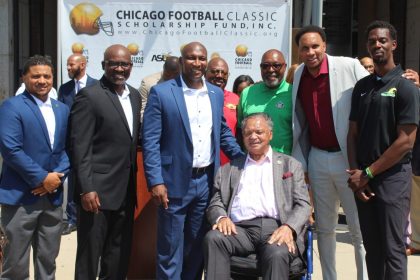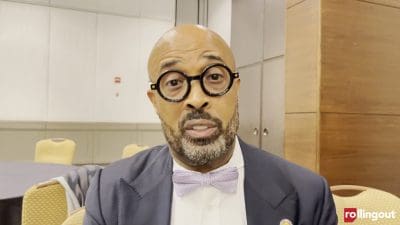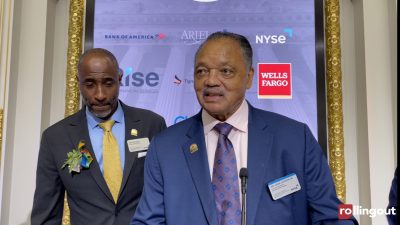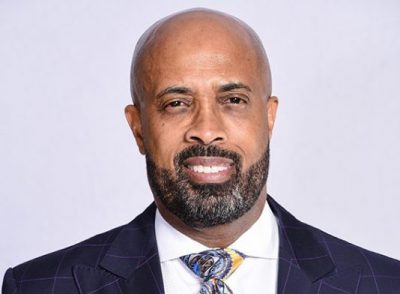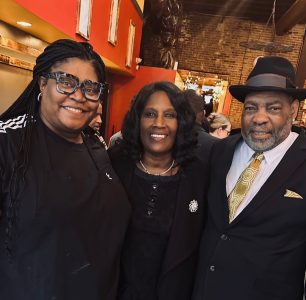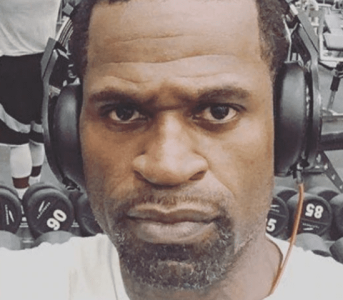 Editor’s note: The following op-ed has not been edited and the opinions expressed are solely those of the writer.
Editor’s note: The following op-ed has not been edited and the opinions expressed are solely those of the writer.
Our people tend to rally behind charismatic leaders, exalting them with our moral and financial support. African-Americans have supported leaders promising to get us to the “Promised Land” but they themselves are usually the only one to arrive at this desirable destination. Unfortunately, a profitable enterprise can be made out of a people’s suffering, political aspirations, hopes and desires. Black leadership is big business for individuals inspired by money and prestige based off our struggle as a people. Our people’s yearning for freedom has often been stifled by leadership that has sold out the struggle. Paid black leadership has been around a long time. Many of these “so-called” leaders have used their visibility and social positions as a means to receiving “token” support from the masses of Black folk. These kinds of leaders compromise the destiny of their own people for cold cash. Slavery was and is the bedrock of the Western World capitalist economy.
Too many of our “leaders” have gotten used to the limousines, mansions, entourages and platinum credit cards, financed by our people’s desire to be free. Often times this kind of leader fights “in words” rather than “in deeds”, which in this author’s opinion makes them nothing more than “cheerleaders” who might as well be wearing pompons and a hula skirt. As a historically oppressed people in America, we cannot afford to have leaders who get caught up in the financial gain off the struggle of our people. Many “leaders” tell our people to “continue the struggle” but never talk about achieving “victory” or established time tables for achievement. Is it because they are being “paid” as a direct result of the struggle? Paid black leadership generally doesn’t want to “lead” our struggle, the want to “contain” our struggle acting as a “buffer” between the Black masses and the oppressive power structure. The “paid” leader will stand between his people and the system but never really wanting them as a mass to go after the power structure. They will criticize the government but never seriously engage it or demand fundamental changes that will after the masses of Black folk.
Take the 1963 March on Washington as a historical example. As Malcolm X pointed out, “the masses were the ones talking about marching on Washington, D.C. to shut down the city’s functioning.” When the Power Structure was advised of this “steamroller” coming, they called all the prominent Civil Rights leaders to the Carlisle Hotel in New York to meet with Robert Kennedy, then Attorney General under his brother President John Kennedy’s administration. At this meeting were Dr. Martin Luther King Jr, Roy Wilkins, Whitney Young, A. Philip Randolph, James Foreman and John Lewis who would be called the “Big Six” of the major Civil Rights organizations. Money, constituents and influence always plays a part when it comes to “paid leaders” seeking prominence in the Black community as their “voice”. Robert Kennedy and Steven Corrier set up the Council for United Civil Rights Leadership for fund-raising and catapulted the “Big Six” to lead it when they were not originally in the march as Malcolm X articulated in his famous “Message to the Grassroots speech” This council was co-chaired by Whitney Young of the Urban League and Steven Corrier of the Kennedy Administration. Reportedly, the Kennedy Administration gave the “Big Six” $800,000 prior to this “March” and $ 700,000 after its conclusion totaling a million and a half dollars split up between their respective Civil Rights organizations. Not suggesting that the “Big Six” were money hungry, but it is a fact that the original intent of the March was more militant but what developed was more like a picnic and if you are financially supported by the very system of government that you were marching on the end goals cannot be expected to be the same.
This era’s “leaders” like Rev. Jesse Jackson, Rev. Al Sharpton, Minister Louis Farrakhan, Dr. Cornell West, Tavis Smiley and many others have done some good things to spotlight problems that plague the African-American community but usually for a fee or honorarium. During the Black Power era in the 60s and 70s there was more of a grassroots local organizing effort amongst the leadership which would produce a Black Panther Party in the Revolutionary Nationalist perspective along with The Republic of New Africa (RNA) providing a more land focused Black Nationalist view point and of course the long standing Nation of Islam from the Spiritual Nationalist perspective which has always had a great impact on the local brother and sister on “The Block”. The Platform and Program perspective on the local level which could inspire a national program seemed to transcend the more prominent leaders’ objective to be in the news and the media’s darlings.
Malcolm X once said, “No individual should rise above the condition of his people” which meant to be a deterrent to so-called leaders who used their notoriety and “fame” to make money but do little to nothing in the community. Active involvement of the community is the best conscious raiser in pursuit of the fundamental change the people need by working on and implementing each step of the Platform and Program which offered the best method of complete constructive change which can be called a revolution. Indeed fundraising to support organizations is a vital component for any organization but with “Leaders” getting speaking fees or honorariums, it is hopeful that the money filters down to some program that directly serves the needs of the community. According to Goviva Speaking Bureau, speaking fees for Jessie Jackson range from $50,000 to $100,000, Minister Louis Farrakhan’s range is from 35,000 to $50,000 which is comparable to what Rev. Al Sharpton makes for appearances. T.D. Jakes and others also command a sizable contribution in the religious evangelist arena, so this can be big business around a cult personality and if money is not used correctly the community they claim to serve is the biggest loser.
–Malik Ismail is an international traveler, historian and activist. He’s explored many cultures in Africa including Ghana, South Africa and Egypt. He’s traveled to Cuba and South America. Recently he visited Rio de Janeiro and Salvador Bahia, Brazil including the favelas of Rocinha and Cidade de Deus (City of God) in Rio. A former Panther Minister of Information (NPVM) whose writings have been featured in the L.A. Watt’s Times, It’s About Time BPP Newsletter, rolling out Magazine and The Black Panther Intercommunal News Service. Email: [email protected]



